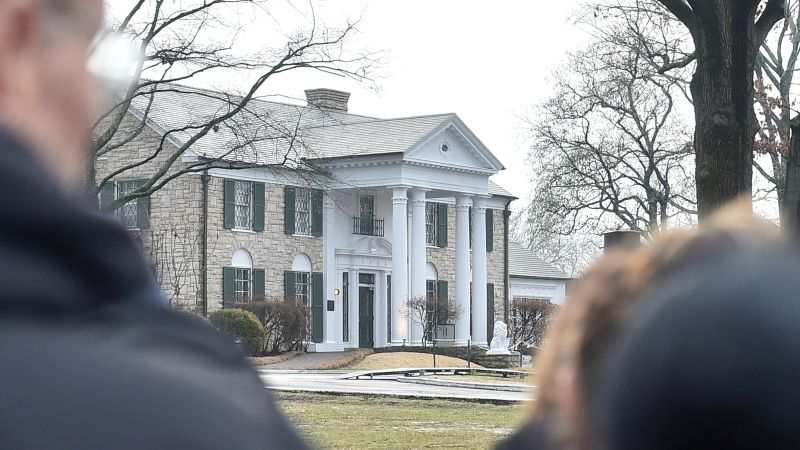Last month, a much-beloved piece of American history was nearly stolen – but not in a museum heist or a home burglary. Instead, self-proclaimed scammers used a fraudulent real estate scheme. In late May, Graceland, Elvis Presley’s iconic Memphis home-turned-tourist-attraction, was nearly auctioned off when a company called Naussany Investments and Private Lending fraudulently said it had a claim to the house. A Tennessee judge ultimately stopped the sale. Experts say rental properties, vacation homes and homes where the owners are deceased can be targets of home title theft. However, despite the high-profile Graceland attempt, these types of scams remain are still relatively rare.
Last year, there were a total of 9,521 reported real estate scams, including title theft, according to the FBI’s annual Internet Crime Report — a number that has stayed relatively stable over the past five years. But these crimes have become easier than ever to execute, according to experts. Home title fraud occurs when scammers impersonate homeowners to refinance or sell a victim’s property and pocket the money. This type of fraud can be devastating and costly to resolve.
David Fleck, a real estate fraud attorney in Los Angeles, explained the vulnerability of current real estate transactions to fraud. “The way we transfer ownership of property in this country is by signing a deed of some sort in front of a notary who verifies our identity. Then, that document is recorded by the recorder’s officer or the clerk’s office. Their job is to keep the official copy of the document forever,” he said.
In the case of Graceland last month, the purported scammer presented documents claiming to show that Lisa Marie Presley, the recently deceased daughter of Elvis and Priscilla Presley, had borrowed $3.8 million from Naussany Investments and used Graceland as collateral. Actress Riley Keough, Elvis Presley’s granddaughter and the current owner of the property, sued to protect the estate from going to auction, alleging fraud and claiming Naussany had no right to the property. Naussany’s documents apparently contained a Florida notary’s forged signature, according to court records.
Tennessee Attorney General Jonathan Skrmetti announced that his office was looking into the attempted foreclosure auction of Graceland. In an email associated with Naussany Investments to CNN, a self-proclaimed scammer claimed responsibility for the attempted home title fraud. “I didn’t win this one. I’ve stole (sic) many identities and received monies, we don’t win all,” the email read.
Jeremy Miller, director of product and development at Allstate Identity Protection, emphasized the importance of remaining vigilant to protect against home title fraud. “When there’s a lot of documentation flying back and forth, some red flags might be missed,” Miller said.
There isn’t an easy fix for this type of fraud. Fleck said the best recourse is to file a lawsuit so that a court can decide who actually owns the property, which can be costly and time-consuming. “Once a fake deed is recorded, the only option for the true owner is to file a special kind of lawsuit called a quiet title action to get the court to figure out who actually owns the property,” he said, estimating that the process often takes more than six months.
Fortunately, there are ways to thwart home title fraudsters before they list your home for sale or take out a new mortgage in your name. Fleck advised homeowners to check their county’s offerings for deed monitoring services before considering paying for a service.
Miller warned that if a crook with your identity goes unchecked, they may try to perpetrate other fraudulent schemes in addition to home title theft. Homeowners should closely monitor their financial statements and credit reports for any signs of identity theft. “A lot of times, early detection can help reduce risk,” Miller said.



